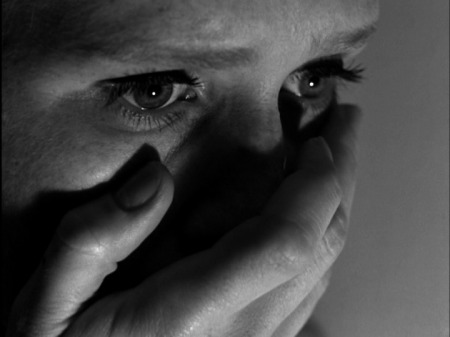If you’ve ever had to write an essay about something seemingly meaningless, you probably know how this works. You pick a thought (the more unlikely the better), connect everything to it (the less obvious the connections the better), and make sure to overlook anything that goes against your “theory.” Does this projection of meaning onto chaos sound like what art critics do?
All is well until you start believing your own words. That is what happened to me, and I am open-sourcing some of them here, for the whole world to point and laugh and maybe even plagiarize. This story is about Bergman’s Persona and a certain Andalusian Dog, so if you haven’t seen those species yet, come back later.
Persona: the metafilm
An unwanted child, an insecure man, an arrogant genius, Ingmar Bergman directed what could very well be the most cryptic movie ever made. Persona is painted in two layers: a foreground that makes sense on a background that mystifies. The upper stratum is Alma’s story of self-acceptance, of coming to terms with her dark side. The backdrop is Bergman’s meditation on cinematography.




 Posted by Constantin
Posted by Constantin 
 Last night I decided to watch V for Vendetta for a second time. The first time I’ve seen it, not long after its release, the movie failed to impress me. This time, the same flaws jumped to my eyes: bad (fake) acting here and there and too many special effects.
Last night I decided to watch V for Vendetta for a second time. The first time I’ve seen it, not long after its release, the movie failed to impress me. This time, the same flaws jumped to my eyes: bad (fake) acting here and there and too many special effects.